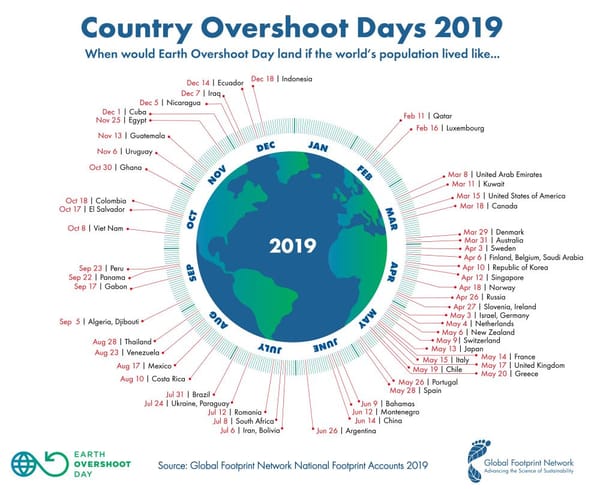The Need for a Green Rebellion

We are running out of time
In wartime, no one questions the urgency of the situation. Everyday politics is often put aside, as survival becomes the only priority at hand. Cooperation becomes the focus on all levels of society; leaders unite, industries work towards the most urgent needs, and citizens contribute in any way they can. Society does not stand by and await disaster, but acts through common efforts to avert it. The question that must follow is therefore: Why, in the face of what may be the greatest threat in history of mankind, are we doing nothing?
The threats of climate change should not be underestimated. The medical journal The Lancet recently declared climate change the “biggest global health threat of the 21st century”. They derived several expected global health issues from rising temperatures. Other than the direct harm of heat stress, additional effects include the spread of certain diseases and a reduction of people’s ability to work, particularly in the agricultural sector. Between 2000 and 2017, the number of people annually exposed to heat related risks has already increased by 157 million. Furthermore, rising temperatures has also exacerbated desertification, which currently affects 2.7 billion people, and is expected to cause up to 700 million migrations by 2050. Another 280 million people, of which 3.8 million Britons, are expected to be forced to leave their homes as a result of rising sea levels in the case of a 2°C temperature increase. We cannot even begin to imagine all the disasters that climate change can bring, and it should be clear to everyone that we are heading towards a global crisis.
Unfortunately, that does not seem to be the case. Earlier this week, PM Boris Johnson described participants of the ongoing protests as “uncooperative crusties”, and brought up Margaret Thatcher as someone who “took [greenhouse gases] seriously long before Greta Thunberg”. Ironically, he unintentionally pointed straight at the problem: for 30 years greenhouse gas emission has been a recognised issue, and yet it has not been dealt with.
In signing the Paris Agreement in 2015, a total of 222 nations agreed to limit global warming to 2°C above pre-industrial levels, and aiming for under 1.5°C. Sadly, only two countries - Morocco and The Gambia - are on track to meet the 1.5°C goal. (It is important to remember that, whilst a 1.5°C increase would be much less severe than a 2°C increase, the former will still have dire consequences.) Because all other nations are failing to live up to their pledges, the world is expected to surpass 1.5°C already by 2035, with an expected rise of 3.2°C by the end of the century. At the current emission rate, the remaining “CO2 budget” (the amount of CO2 that can be emitted whilst maintaining a 66 % chance of meeting the 2°C target, estimated by IPCC) will be completely exhausted in 17 years, with only 11 years remaining in order to stay below 1.5°C. In other words: we are running out of time, and nothing is being done about it.
A better future is possible
One argument that is frequently used by opponents of investments in sustainable development is that future technology will be able to solve any issues related to climate change. For all those people, there are good news: the future is now!
As a result of recent advances in wind and solar power - improved design, lowered production costs, and an increase of utility-scale operations - renewable energy has now become cheaper than conventional energy sources. According to a report released by the International Renewable Energy Agency (IRENA) in May this year, renewable energy produced by wind turbines and photovoltaics are frequently cheaper than any fossil fuel alternative. As renewable energy production costs continue to fall, new installations are expected to undercut even the continuation of existing coal power plants. Furthermore, advancements are being made in the production, storage, and use of hydrogen fuels, whilst carbon capture, utilisation, and sequestration is an active research area with the emerging market.
Such progress is proof that necessary sustainable technologies are - at the very least - well within reach, and their development does not require anything more than a willingness to invest and adapt. However, the sole existence of sustainable technologies will not drive change. Again and again, influential individuals and organisations have actively worked against necessary sustainable developments in favour of their own short-term political and financial benefits. We cannot tolerate this any longer, and sustainability must become as sought after as economic growth is today.
The need of a global movement to force change
The risks and causes of climate change have been long known. Had we acted early enough, we would not have been in the urgent situation that we are in now. But we are, and we now need change at an unprecedented rate and scale. Political campaigning has failed. Corporations still score short-term benefits from environmentally damaging activities. Traditional activism has not had the necessary large-scale impact. Self-imposed individual behavioural changes will never be a realistic solution to a global issue. Thankfully, history provides a solution.
Famous examples such as Gandhi’s anti-colonialism, Mandela’s fight against apartheid, and Dr Martin Luther King’s and Rosa Parks’ civil rights movement, all prove the effectiveness of civil disobedience and non-violent direct action. Once a government starts arresting thousands of its own peaceful citizens, it soon loses its legitimacy. This is what is needed today: a global political movement with widespread support from people, so immense that it becomes impossible for those in power to ignore.
For this to come true, people must show their support for the ongoing protests. Everyone is welcome, and everyone is needed. Support can be shown simply through silent agreement, and more preferably through participation, or even by taking one’s own initiatives. One may even argue that, in times of societal emergency combined with political inaction, civil disobedience is a duty of every citizen.








